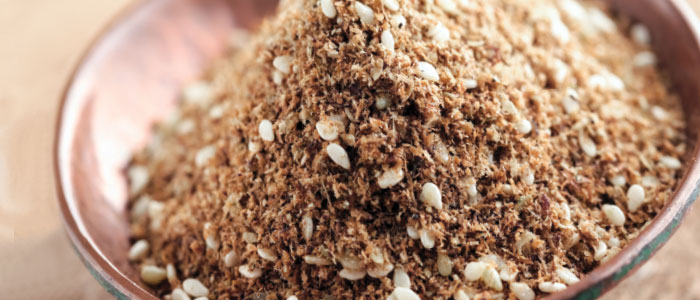Za'atar
This article was originally published in February 2015

The name refers to both a beloved condiment that is popular throughout the Levant and a beloved species of Palestinian wild thyme. There are regional differences throughout the Middle East, but this basic version balances the sharpness of thyme with peppery-sweet marjoram, earthy sesame and tart sumac, pulled together with a sprinkling of flaky salt.
The beauty of this blend lies in its ability to wake up the flavor of all sorts of simply prepared food — a shaker of it might even replace salt and pepper on your table. Sprinkle it on your morning eggs or dinner’s roasted squash, brush some olive oil on flatbread and add a few shakes; you can even appreciate it on a basic cheese pizza. It’s a classic topping for shakshuka, and a natural pairing any time you’re serving a dish that involves feta or hummus. When it comes to proteins, lamb and chicken are great choices, and tofu takes to it nicely. You can also stir a generous spoonful into yogurt to make a simple dipping sauce for chips or vegetables, or blend it into a fruity olive oil for a flavorful salad dressing.
Recipe for Za’atar
Get the recipe for Za’atar >>
Great flavor, great value
Pick up all the necessary dried herbs and spices in our bulk department to go along with your favorite medium-grain flaked salt (such as kosher or finishing salt). Or find this spice blend mixed and ready for sprinkling in the PCC Deli. Find more ideas here.
